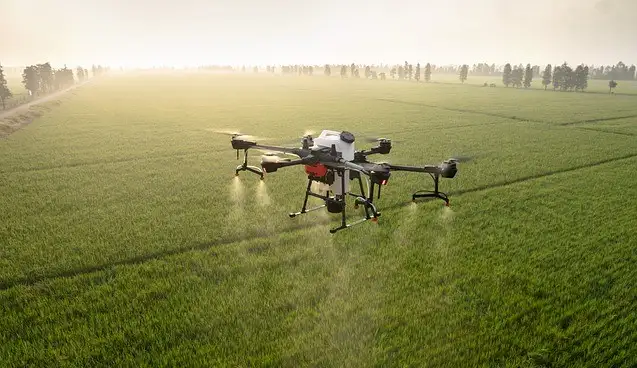Friday, 20 February 2026

In a landmark move to reshape the agricultural future of the state, the Government of Maharashtra has launched the MahaAgri-AI Policy 2025–2029, India’s first dedicated strategy to harness the power of Artificial Intelligence (AI), Generative AI (GenAI), and emerging technologies across the agricultural value chain. With an initial allocation of Rs 500 crore and scope for additional funding, the policy sets a bold agenda to position Maharashtra as a national leader in digital farming and AI-driven innovation.
The MahaAgri-AI Policy presents a strategic roadmap to tackle pressing agricultural challenges, including declining productivity, water scarcity, inefficient market linkages, and the rising unpredictability caused by climate change. At the core of the policy is a vision to create a sustainable, inclusive, and technologically empowered agricultural ecosystem where farmers are placed at the center of innovation. The government aims to promote real-time advisory systems, precision farming tools, and end-to-end traceability platforms to deliver better outcomes for both farmers and consumers.
A senior official from the Department of Agriculture remarked, “We are not just digitizing agriculture; we are reimagining it. Maharashtra will become a model for the rest of India by harnessing AI for climate-resilient farming, market access, and farmer prosperity.”
To support this transformation, the state will build a shared digital public infrastructure comprising several key innovations. These include a federated, consent-based Agricultural Data Exchange (ADeX) to enable secure data sharing among stakeholders; an AI Sandbox Environment that will allow startups and innovators to test solutions in simulated real-world conditions; and a Remote Sensing & Geospatial Intelligence Engine for high-resolution yield forecasting, waterbody monitoring, and disaster mapping. The policy also includes the VISTAAR Initiative, which will deliver AI-powered multilingual advisories to farmers, integrated with national platforms such as Agristack and Bhashini. A blockchain-based traceability system using QR codes will be introduced for food safety and export compliance, with an initial focus on grapes, bananas, and pomegranates.
The policy outlines a robust institutional mechanism to ensure effective implementation and governance. A State-Level Steering Committee (SLSC), chaired by the Chief Secretary, will oversee project approvals and monitor progress, while a State-Level Technical Committee (SLTC) will evaluate the technical and commercial feasibility of AI proposals. A dedicated AI and Agritech Innovation Centre will be established to drive implementation, coordinate among stakeholders, host hackathons, and monitor outcomes. Further, four AI Research and Innovation Centres will be established within State Agricultural Universities to support solution development, incubation, and field-level testing.
Startups and innovators are key to the MahaAgri-AI vision. The policy provides for targeted funding, sandbox access, and data integration support to encourage both early-stage and mature solutions. Public-private partnerships will be actively promoted, and innovation challenges will be launched to address region-specific agricultural needs. The state also places strong emphasis on digital literacy and farmer empowerment. Specialized training modules, fellowships, and hands-on demonstrations will be introduced to build trust and ease of adoption among farmers and extension workers.
To project Maharashtra’s leadership in agricultural innovation on the global stage, the government will host an Annual Global AI in Agriculture Conference & Investor Summit, bringing together stakeholders, policymakers, startups, and researchers to foster collaboration and attract investment.
The rollout of the policy will take place in four phases. The first phase will involve institutional setup and platform architecture design. The second will see pilot testing in selected districts and early-stage rollouts. The third phase will cover statewide deployment and integration with national digital infrastructure. The final phase will focus on policy refinement, third-party evaluation, and potential expansion to other sectors.
The Rs 500 crore budget will be allocated across digital infrastructure, project support, capacity building, and the hosting of global engagement events. A mid-term review is scheduled for the third year to ensure adaptability and responsiveness to ground realities and emerging technologies.
With the launch of the MahaAgri-AI Policy 2025–2029, Maharashtra is taking a pioneering step toward building a digitally empowered, future-ready farming ecosystem that is sustainable, data-driven, and farmer-centric.